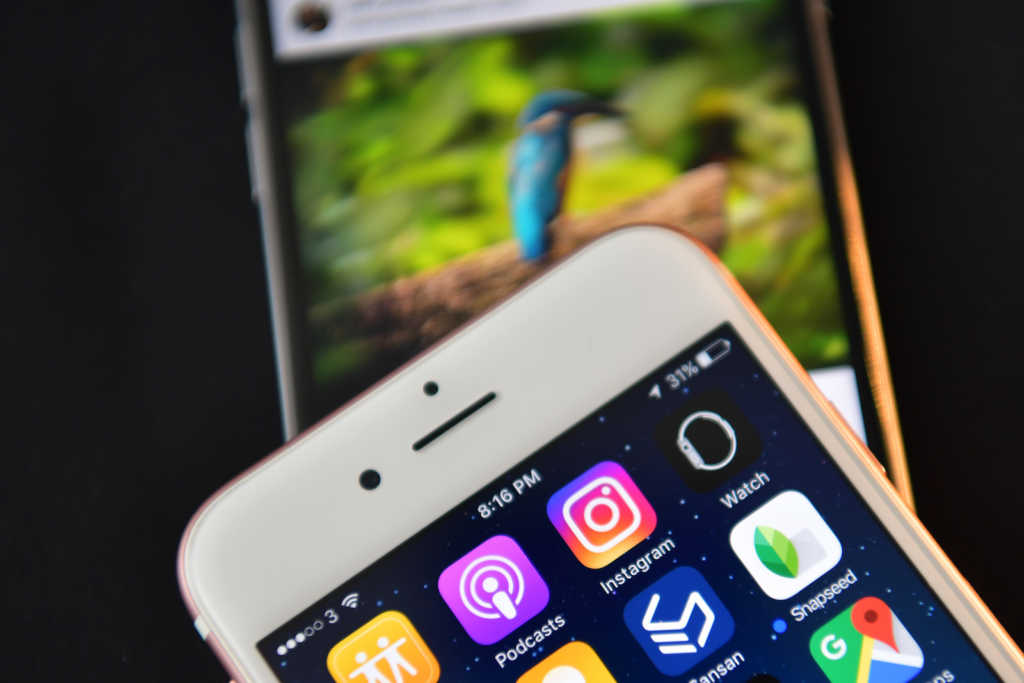You know how the saying goes: Idle hands are the devil’s workshop.
While I think that proverb gives Satan a little too much credit for our bad choices, the principle proved true during the great social media crisis earlier this week, when Instagram, Facebook and WhatsApp were offline for several hours.
At around 11 a.m. Wednesday, the family of Facebook-owned apps started malfunctioning, according to The Washington Post. As a result, internet users could no longer spend their spare time browsing their social media timelines. They instead chose to turn their attention to pornography.
Pornography Fuels Sexual Abuse, And College Campuses Need to Take Action to Fix It
Because we live in a society desperate for dopamine hits and eager to drown out any encroaching silence, operating for a day without Facebook, Instagram and WhatsApp just wasn’t an option.
To ease the pain of our No. 1 addiction being yanked away from us, we turned to something else: deflated internet users flocked to Pornhub midweek.
The smut website, which garners about 90 million users every single day, saw an 11 percent spike in traffic right after the Facebook outages started. Viewing dropped in the afternoon hours, presumably because people were back to work, but shot up by 19 percent in the evening compared to the average day.
Our tandem cultural addictions to pornography and social media came to a disturbing crossroads Wednesday, when, in the absence of Instagram and Facebook, anguished web surfers searched Pornhub for explicit content related to the two then-downed social media sites.
According to Pornhub’s internal data, searches within the website for “Instagram” jumped 323 percent and searches for “Facebook” were up by 221 percent.
Large Companies Pull Ads From YouTube After Blogger Claims Site Hosts ‘Soft-Core Pedophilia Ring’
If nothing else, Wednesday’s great social media crisis revealed, yet again, our deep societal illness. Americans are crippled by pornography, and that was on clear display this week.
Roughly 40 million Americans are visiting pornography websites on a daily basis and nearly 30,000 internet users are watching explicit content every single second. It’s even impacting our ministry leaders, 57 percent of whom have admitted to struggling, either now or in the past, with viewing pornography.
There are literally zero benefits to consuming pornography, yet it is still choking the little remaining sexual morality from our society. In addition to having negative physical and mental ramifications, it is feeding directly into a culture of sexual abuse and assault.
Research has shown those who spend hours watching pornography — most of which is physically violent and verbally aggressive — typically become increasingly numb to abusive behavior. Even more horrifying, men who have watched violent pornography, particularly scenes depicting so-called “rape fantasies,” are more inclined than those who haven’t to grossly assume a rape victim enjoyed her assault and that women generally find rape arousing.
If for some reason there was any question America is home to a crisis of sexuality, Wednesday’s spike in pornography consumption just because Facebook wasn’t around for a few hours should put that naiveté to bed.
America Has a Serious Porn Problem — It’s Worse Than You Think
It’s very real and it’s a problem that needs attention now.
During an interview with Faithwire last month, Donna Rice Hughes, founder of Enough Is Enough, a nonprofit dedicated to protecting children and women by curbing the consumption of internet pornography, argued the level of smut Americans are viewing is “a public health issue.”
“The science backs that up,” she said.
Are you struggling with pornography?
Faithwire recently launched an e-course to help anyone working to eliminate pornography from their lives. The seven-week video series, Set Free, gives participants the spiritual and practical tools they need to combat sexual sin in their own lives.
If you or someone you know could benefit from the study, click here to sign up or to learn more about the course.



